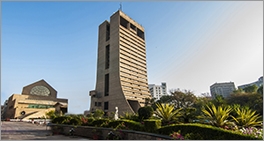Municipal Corporation Delhi2023 (MCD) is a civic body responsible for the administration of the city of Delhi in India. It is divided into three administrative zones – North, South and East – each headed by a Commissioner who is responsible for the overall functioning of the zone. The MCD is one of the largest municipal corporations in the world and is responsible for providing essential services like sanitation, public health, water supply, and waste management to the residents of Delhi.
History and Structure
The MCD was established in 1958 under the Delhi Municipal Corporation Act, with the merger of the Delhi Municipal Committee and the Delhi Municipal Corporation. The MCD was initially divided into six zones – Civil Lines, Sadar Bazar, Paharganj, Karol Bagh, Shahdara, and Narela – each headed by a Deputy Commissioner. Over time, the MCD has undergone several changes in its structure, and currently, it is divided into three zones – North, South, and East.
Functions and Responsibilities

The MCD is responsible for providing a range of essential services to the residents of Delhi. Some of its key functions and responsibilities include:
- Sanitation and Public Health: The MCD is responsible for maintaining sanitation and public health in the city. It provides services like garbage collection, street cleaning, pest control, and vaccination programs to ensure a clean and healthy environment for the citizens.
- Water Supply: The MCD is responsible for ensuring the availability of clean and safe drinking water to the residents of Delhi. It manages the distribution of water through a network of pipelines and storage tanks.
- Waste Management: The MCD is responsible for managing the waste generated in the city. It provides services like waste collection, transportation, and disposal. The MCD has also set up waste-to-energy plants to generate electricity from the waste.
- Public Works: The MCD is responsible for the maintenance and construction of public infrastructure like roads, bridges, and flyovers. It also manages public parks and gardens.
- Property Tax Collection: The MCD is responsible for collecting property tax from the residents of Delhi. It uses the revenue generated from property tax to fund its operations.
Challenges and Controversies
The Municipal corporation Delhi has been beset by several challenges and controversies over the years. One of the biggest challenges it faces is the inadequate funding from the government. The MCD relies heavily on property tax for its revenue, and often struggles to generate enough funds to provide essential services to the citizens.
Another challenge the Municipal corporation Delhi 2023 faces is the poor state of its infrastructure. The city’s roads, bridges, and flyovers are often in a state of disrepair, leading to traffic congestion and accidents. The MCD has also been criticized for its poor waste management practices, which have led to environmental pollution and health hazards for the citizens.
The Municipal corporation Delhi has also been embroiled in several controversies over the years. In 2017, the Delhi government ordered an inquiry into allegations of financial irregularities in the MCD. The Municipal corporation Delhi has also been accused of corruption and nepotism in the past.
Conclusion
The Municipal Corporation of Delhi plays a critical role in providing essential services to the residents of Delhi. Despite facing several challenges and controversies, the Municipal corporation Delhi continues to work towards improving the quality of life of the citizens. It is important that the government provides adequate funding to the Municipal corporation Delhi , and that the MCD takes steps to improve its infrastructure and waste management practices. With the support of the government and the citizens, the MCD can continue to serve the people of Delhi effectively